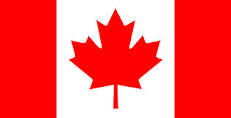Tax Returns and Forms for Non-Residents
Allan Madan, CPA, CA
Are you a non-resident of Canada, or are you planning on becoming a non-resident in the near future? If yes, then you need to learn about the tax returns and forms for non-residents; otherwise, you could end up with a nasty surprise from the taxman.
Becoming A Non-resident
Becoming a non-resident for tax purposes is not an easy undertaking. There are a few tax returns and forms for non-residents that you will have to complete at the time you become a non-resident and in the future too.

When you leave Canada, you should complete an NR73 form to establish your non-residency. This is in addition to the final departure tax return you will file to inform the CRA of your exit from Canada. As part of the departure tax return, make sure to complete the T1161 and T1243 forms. You will have to report the properties you owned and their values on these forms. This is important because the properties you owned are deemed to have been sold at the time of your departure at their fair market value.
Investment income
It is not uncommon for people who become non-residents of Canada to maintain investments like rental properties and equity funds in Canada. If these investments earn income for you, then you should expect to receive a special sip, or file a special return, depending on the circumstances.
If you receive dividends, interest, and/or rental income, then you should get a NR4 slip from the payer. The NR4 will show you the amount of taxes that were withheld and how much after-tax income was actually given to you. In Canada, tax is withheld on payments made to non-residents. This is usually their final tax obligation, and they do not have to file a special return. However, this changes slightly if you earned rental investment income.
Please see our article on Section 216 returns for more information on special tax returns and forms for non-residents who own rental properties.
Disposal of property
Non-residents who dispose of taxable Canadian property, like stocks, rental property, or other personal-use property also have to file a special form called a T2062 and T2062A called a “Request by a Non-Resident of Canada for a Certificate of Compliance Related to the Disposition of Taxable Canadian Property”. After that, you will have to file a special tax return called a Section 116 return.
Disclaimer
The information provided on this page is intended to provide general information. The information does not take into account your personal situation and is not intended to be used without consultation from accounting and financial professionals. Allan Madan and Madan Chartered Accountant will not be held liable for any problems that arise from the usage of the information provided on this page.




Hello:
I owned house in Toronto from 1992 through Nov 2013, and it was my principal residence until I moved to the US in June 2003. At that time it was rented until I sold it. I did file section 216 returns with income/expense statements (T776) for the years I was a nonresident of Canada, and never took any depreciation on the house while it was rental property.
The accountant and lawyer I involved for the transaction never submitted T2062 on time, and did not submit the T2062A at all, so I believe I have a $2500 fine pending.
What is your charge to complete these documents as I think the current accountant did not know what needed to be done to complete the forms properly. And also, what is your charge for the 2013 general T1 return that also needs to be filed.
Thanks,
Andrew